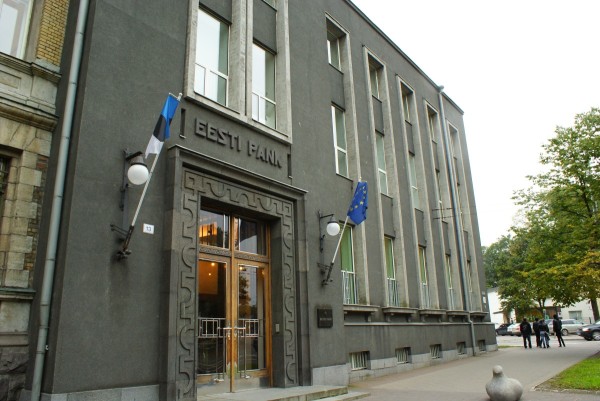Urmas Paet: Estonia and Russia Need Clearly Defined National Borders
30.05.2013
We are not doing Russia any favours with the border treaties – a clearly established border is an essential aspect to ensuring our security, writes Foreign Minister Urmas Paet (Reform Party).
The consultations to bring an Estonia-Russia border treaty into force, which began thanks to a proposal made by all the factions in Estonia’s Parliament last October and went on for seven months, have come to an end.
The treaty text that was approved in 2005 after more than ten years of border negotiations has been updated with the clear confirmation of the fact that the treaty exclusively regulates matters related to the national border. Nothing else. Now it is possible for the 20-year process to achieve an Estonia-Russia border treaty to end and for Estonia and Russia to get functional border treaties.
The existence of border treaties between neighbouring countries is generally the rule, not the exception. There is a principle in international relations that the borders between neighbouring states are also defined by agreements. This is an essential security policy guarantee that prevents potential misconceptions and misunderstandings on the vital and sensitive topic of territory in times of peace and of crisis.
A clearly defined and laid out border is an essential aspect to ensuring a country’s security. This applies to Estonia as well. The fact that Estonia currently exercises sovereignty out to its temporary border line and not the national border is not a reasonable solution for the future and could bring potential security risks. This is why the Parliament approved the border treaties back in 2005.
Therefore it is in our clear interest for the future – and our security interests – for the national border with Russia to be legally defined. The fewer open and unresolved issues we have with Russia, the better.
The state border must function and be developed. This requires the existence of a border treaty. The current situation, in which Estonia has a temporary border line, does not allow for the border to be properly developed. After the border treaties come into effect a demarcation commission must be created, who will then establish the exact location of the border across the landscape.
The fact that the temporary solution has worked in peacetime does not necessarily mean that it would also function in more difficult times. Having a border treaty come into effect is a natural development, not something that has been forced on us by somebody. Both Lithuania and Latvia have concluded border treaties with Russia, as have almost all of Russia’s neighbours that do not belong to the Commonwealth of Independent States (CIS).
Yes, unfortunately the 20th century was tragic and difficult for many populations and states in Europe, including Estonia. If we compare a map of Europe from the beginning of the 20th century to a current map of Europe, we can see a great deal of changes. The goal of today’s Estonia is to ensure its future.
Estonia is the most tightly integrated into the international network of any Northern European country; we are a member of many international organisations. Therefore it is essential to know where exactly the international responsibilities of Estonia physically begin and end.
Our eastern border is the border of NATO’s collective defence. As a European Union member state we are also on the eastern border of the EU, or the point where the EU’s single market and common regulations end. A clearly established and functional border also cannot be underestimated from a security or economic policy standpoint.
The goal of the recently completed consultations between the foreign ministries was not to create new border treaties, but to find a solution so that the border treaties, and the border line, approved in 2005 would be ratified by both sides. Therefore we did not re-open negotiations on where the border line should run, which already went on for over ten years. Rather, we carried out consultations to seek possibilities for the border treaties to come into effect.
Occasionally we hear concern over why Russia is even interested in border treaties, which seems to suggest that the treaty is suspicious, or not important for Estonia. But the existence of border treaties is really in the interests of both parties. If Russia’s interest in legally ensuring its border and our interest in legally ensuring our border coincide, then that is the only possible basis for negotiating and reaching a solution.
We are not doing Russia any favours with the border treaties. It is an uninformed belief that Russia needs a border treaty with Estonia to achieve a visa waiver with the European Union. Just as the lack of border treaties with Russia did not hinder Estonia’s accession to the EU and NATO, the treaties are also not related to the European Union and Russia’s visa dialogue. Therefore the existence of Estonia-Russia border treaties is not relevant to potential decisions regarding a visa waiver between the EU and Russia.
Looking at the recent border treaty consultation process with Russia, we observe what are probably the most public negotiations the Foreign Ministry has ever participated in. From the proposal made by the four factions in the Parliament to initiate consultations to the constant co-operation with the Parliament. We have informed the population about the goal and progress of the consultations. The Parliament factions and committees have been informed of details and approved the results of the consultations.
In summary, the existence and enforcement of the Estonia-Russia border treaties is a contribution to Estonia’s future. So that our security environment could be as secure as possible and relations between our countries would be in line with good international standards.
Foreign Minister Urmas Paet’s article appeared in Postimees on 16 May 2013
Urmas Paet: Estonia and Russia Need Clearly Defined National Borders 30.05.2013
Eestlased Eestis | 28 Jun 2013 | EWR
Eestlased Eestis
TRENDING
























